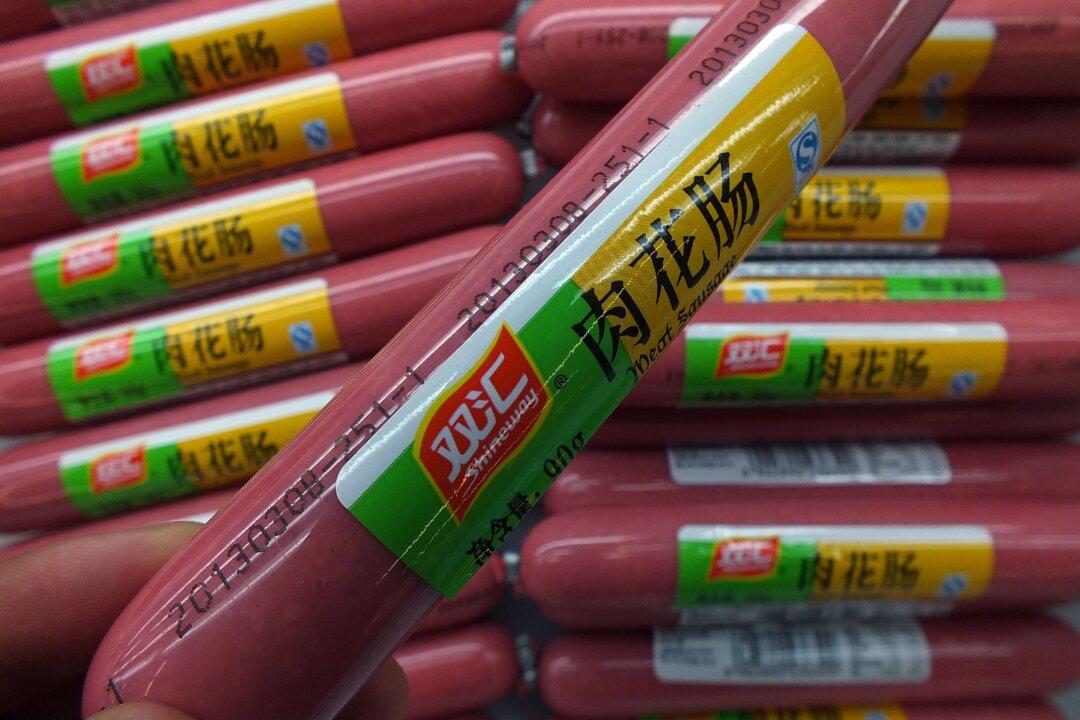In what could be the single biggest takeover of an American company by a Chinese entity, more than a quarter of American pork production may soon fall into Chinese hands.
In May, after years of negotiations, Hong Kong-based Shuanghui International announced that it was ready to buy the world’s largest pork producer, Virginia-based Smithfield Foods. The companies say the merger will benefit everyone: Chinese producers will modernize production, and U.S. farmers can expect more demand.
At a purchase price of $4.7 billion plus accumulated debt, it’s a sweetheart deal for Smithfield’s leadership, who gain lucrative stock options and a 31 percent increase in share prices.
But according to Bob Marshall, a Delegate in Virginia’s General Assembly, Smithfield’s board is blinded by dollar signs. Marshall says that while majority shareholders will win big, the American public will suffer.
“I don’t think this serves the common good or the common stockholder of Smithfield, nor does it serve Smithfield’s corporate responsibility to their customers,” Delegate Marshall said. “They didn’t get that big without customers. That is being abandoned right now.”
Article Continues after the discussion. Vote and comment
[tok id=c50090904942eeaca731b14f7af8e87d partner=1966]
In a letter to Smithfield CEO Larry Pope, Marshall warns that China’s infamous history of food safety scandals will hurt the company’s reputation, and put the jobs of over 46,000 Smithfield employees in jeopardy.
“China’s widespread food safety problems are known to American consumers and will engulf Smithfield Food products regardless of the names under which they are sold,” Marshall wrote.
Since the deal was announced, Marshall has written several letters—to Virginia’s AFL-CIO, to the local Chamber of Commerce, and to several state and federal lawmakers—explaining why the deal is dangerous, and rallying support for an alternative solution.
Marshall, a Republican, wants employees to take over the company. He outlines an Employee Stock Ownership Plan (ESOP), where banks would issue a loan to pay off current stockholders. Instead of a foreign company, Smithfield workers would become the owners.
“If every worker out there becomes an owner thanks to this financing plan, they’ll have a more innate pride,“ Marshall said. ”They’re going to have more dedicated workers, and the money and the wealth will stay here.”
“This is where the left and right can come together, both for the workers and for the country at the same time.”
Historic Ham and National Security
Smithfield, Va. has been renowned for its ham since before the United States was founded. Smithfield the company began in 1936, and through a series of acquisitions, it has become a powerful enterprise that now dominates American hog production.
But there’s more to Shuanghui’s buyout than just another merger. The Committee of Foreign Investment (CFIUS) is in the process of examining what the American public stands to lose if Chinese ownership were to take hold.
CFIUS (comprised of members from the U.S. Treasury, Justice Department, and other agencies) is prohibited from discussing a case under evaluation, but key legislators are urging the committee to consider the consequences beyond company promises.
“[CFIUS] must take China’s and Shuanghui’s troubling track record on food safety into account,” Sen. Debbie Stabenow (D-MI.) said in a June 5 statement. “Just two years ago, Shuanghui International admitted to putting illegal additives in its food products. Earlier this year, more than 9,000 dead hogs were found floating in a river in Shanghai after having been dumped there by farmers after the hogs contracted disease.”
“No one can deny the unsafe tactics used by some Chinese food companies, and, to have a Chinese food company controlling a major U.S. meat supplier, without shareholder accountability, is a bit concerning,” Sen. Chuck Grassley (R-IA) said in a May 29 statement.
Today, Shuanghui shares are owned primarily by investment firms such as Goldman Sachs, but the once state-sponsored company still has strong ties to the Chinese Communist Party. Shuanghui chairman, 71-year-old Wan Long, has been a member of the national legislature for the past 15 years.
“I’m concerned that someone with this kind of background will not let this be the end of it,” said Marshall. “If this foreign investment committee doesn’t say no to this, how will they say no to buying Arthur Daniels Midland, or Tyson Foods?”
“This is not like Brazil; it owns a considerable amount of America’s beef producers, but they’re not spying on us. They didn’t steal, according to the Obama administration, a trillion dollars’ worth of military computer technology.”
“I’ve got very little trust in the government of such a nation. Why would you give those people more leverage over you?”





